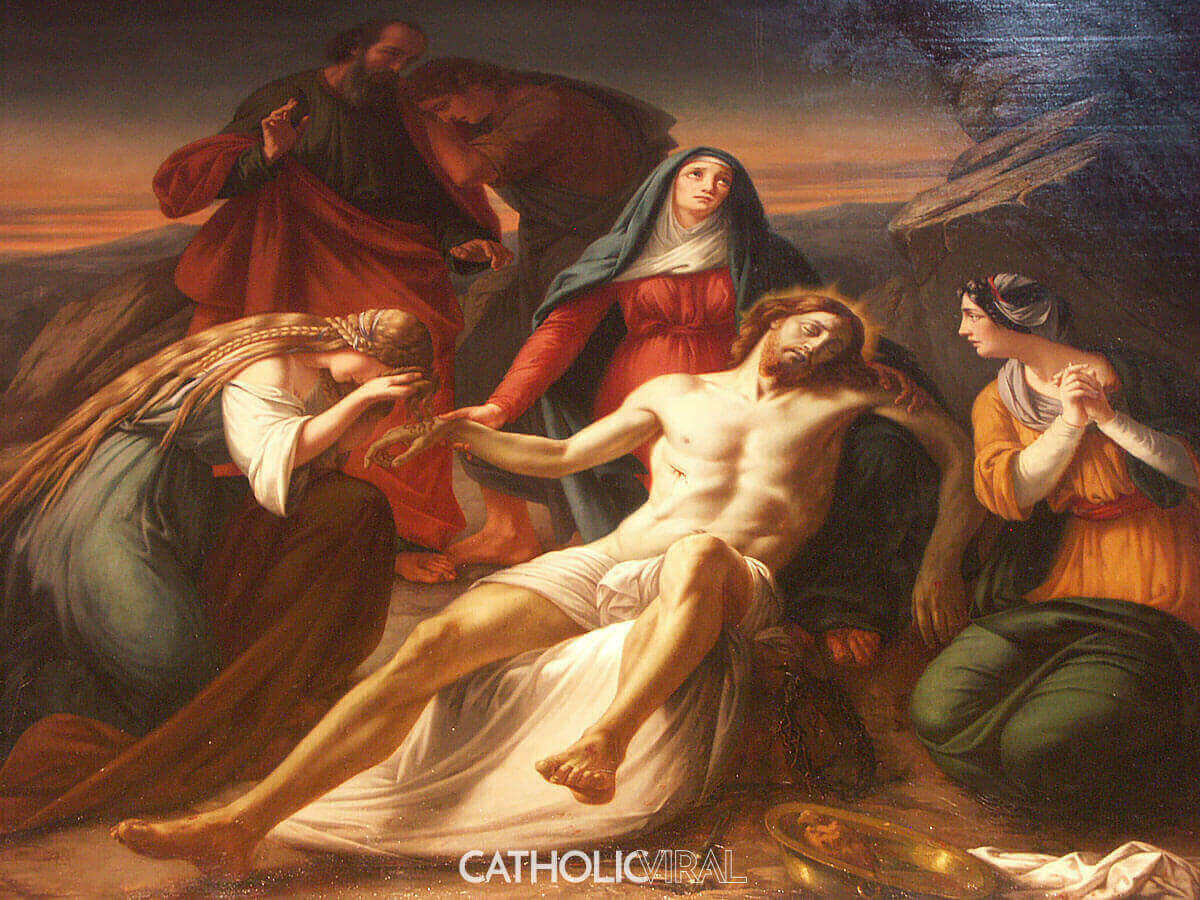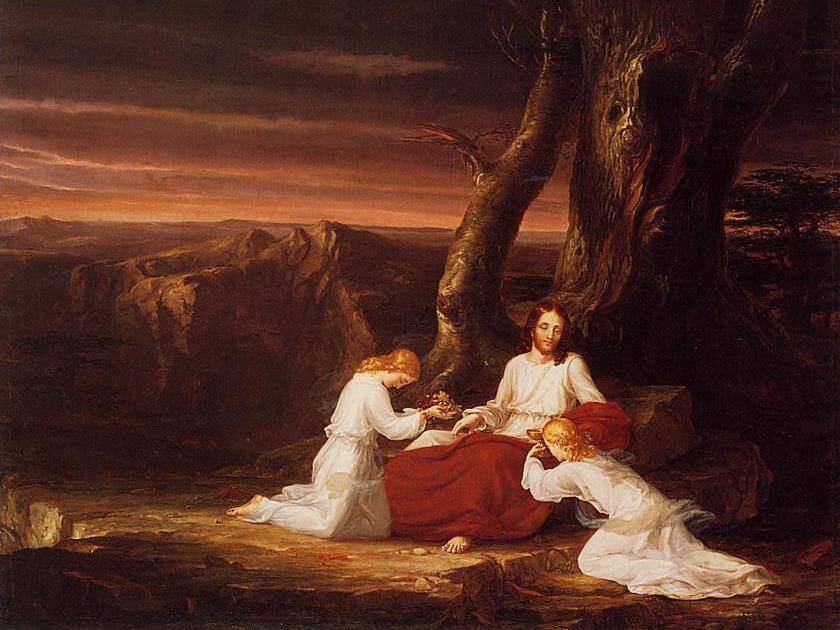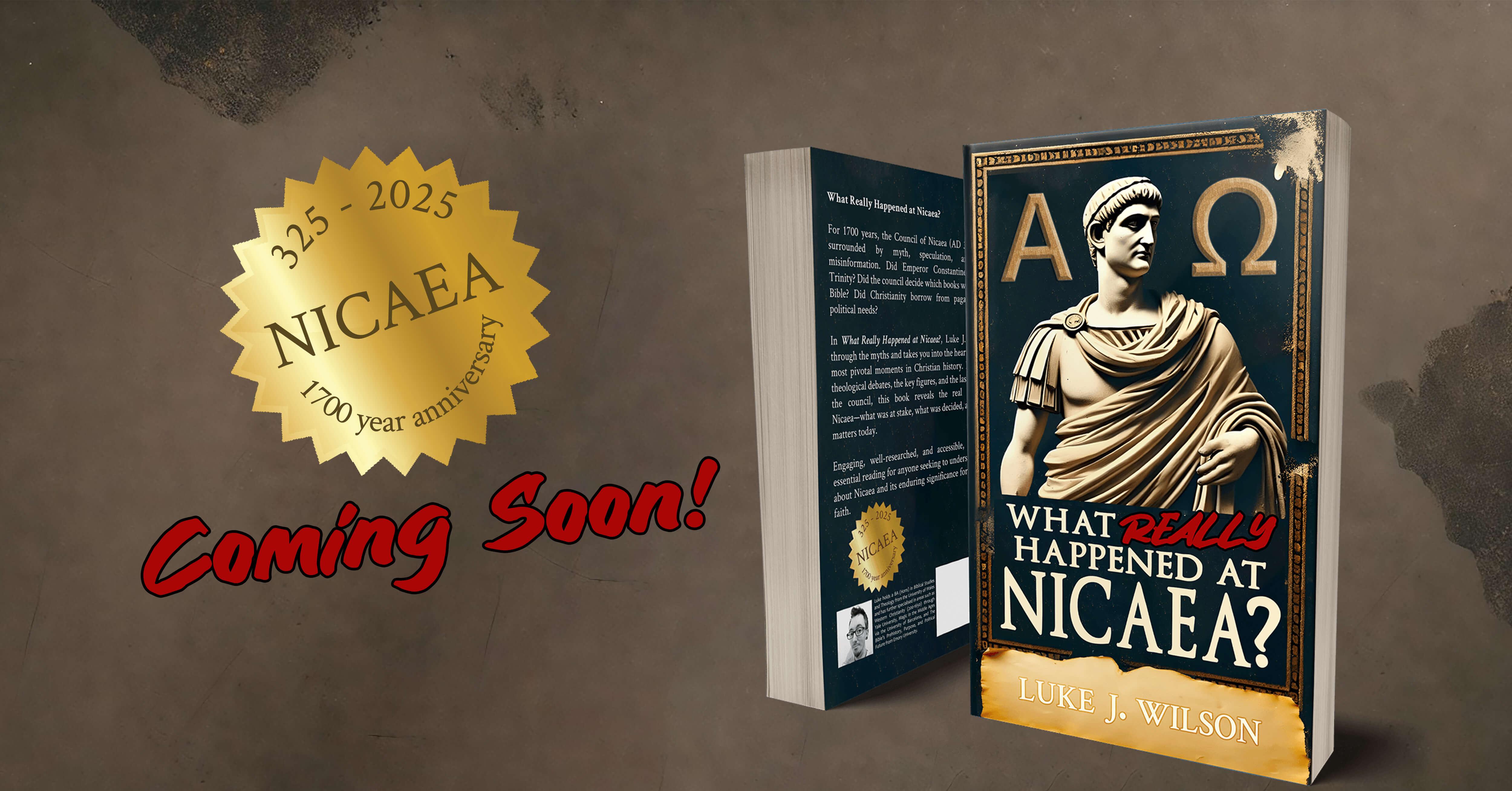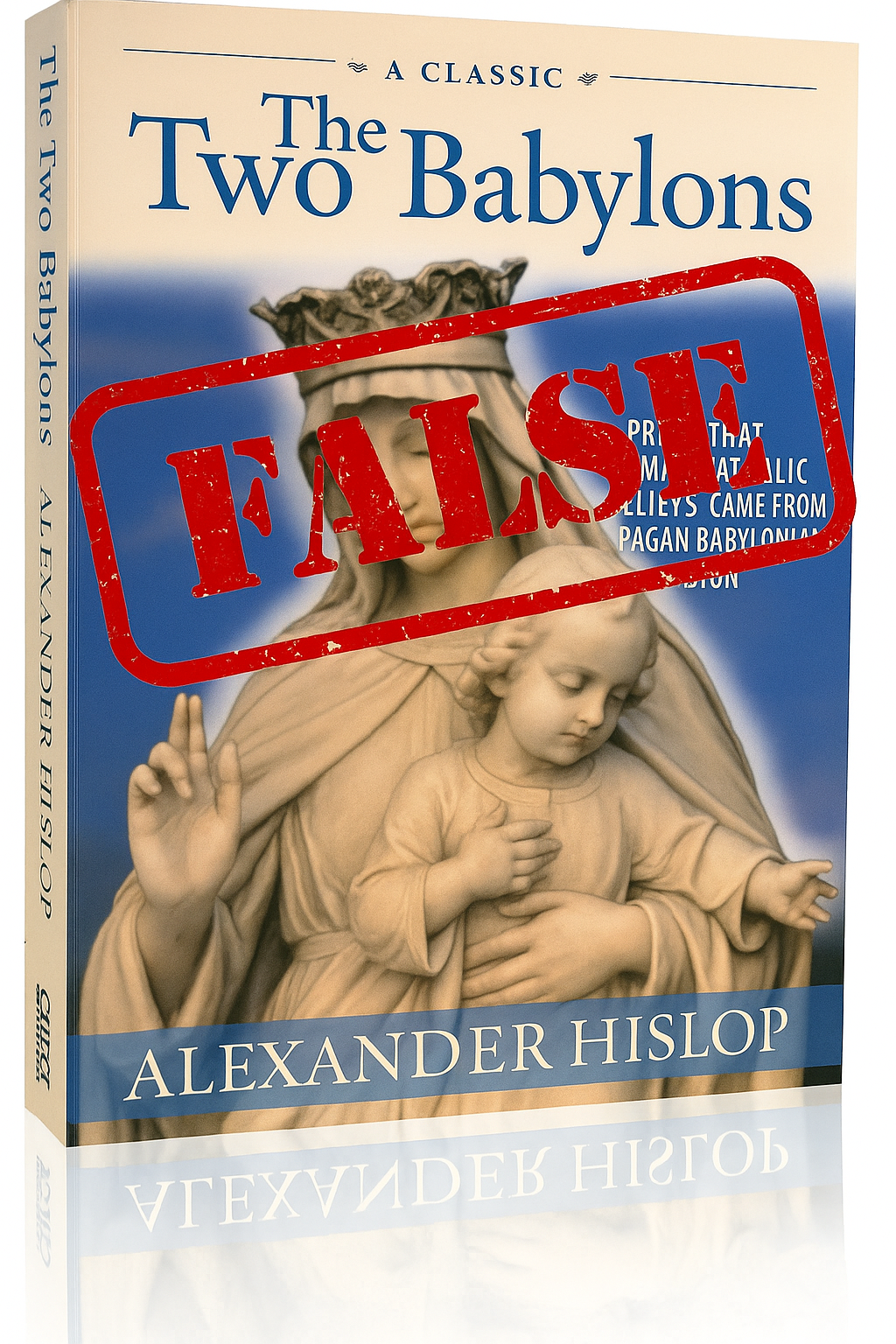Lent: Day 16 - Justin Martyr: First Apology, Chaps. 48-59

Day Sixteen: St. Justin Martyr: First Apology, Chaps. 48-59
Who: Justin Martyr was a Philosopher who converted to Christianity and became a tireless evangelist and apologist. Justin wrote more Christianity than any other person prior to his time. He is classified herein as Eastern, since he a native of Samaria and his thought patterns were Eastern. However, he spent the last years of his life in Rome, where he was executed as a martyr (c. 165).
What: An apologetic (defence) essay to explain what Christians believe and do.
Why: Justin is demanding the Emperor to investigate accusations and unjust persecution against Christians so that they at least may face a fair trial.
When: Around 156 AD
Each chapter or so in this apology deals with a different area of Christian doctrine, with somewhat compact arguments for the reality of what is believed and accepted. I’m going to try and summarise as much as I can and pull out any points which stand out, though not necessarily cover everything written in each chapter.
You can find today’s reading on page 77 here: lentfatherscomplete.pdf
In these chapters today, Justin is continuing with his long exposition of the prophecies concerning Christ, covering every aspect of the life, ministry and death of Jesus. He quotes Scripture at length in order to fully prove his points in order to show the Emperor, to whom he writes, and indeed any of us reading his works today, the undeniable reality that Jesus was the expected and long-awaited Messiah.
I won’t quote massive amounts of these chapters, since it would be redundant, so I’ll just highlight each prophecy and give the Scriptural references which are used in Apology as proofs for Jesus's Messiahship. Finding the actual quotes is sometimes difficult because Justin has a habit of combining various verses from different chapter of the same prophet into one sentence!
Christ’s Life and Death Foretold
Jesus’ life and ministry foretold from a combination of Isa 35:5-6, Isa 32:4 and Isa 26:19 –
“At His coming the lame shall leap as an hart, and the tongue of the stammerer shall be clear speaking: the blind shall see, and the lepers shall be cleansed; and the dead shall rise, and walk about.”
And his death from Isaiah 57:1
“Behold now the righteous perisheth, and no man layeth it to heart; and just men are taken away, and no man considereth. From the presence of wickedness is the righteous man taken, and his burial shall be in peace: he is taken from our midst.”
His Rejection by the Jews Foretold
Isaiah 65:1-3
And the words are spoken as from the person of Christ; and they are these "I was manifest to them that asked not for Me; I was found of them that sought Me not: I said, Behold Me, to a nation that called not on My name. I spread out My hands to a disobedient and gainsaying people, to those who walked in a way that is not good, but follow after their own sins; a people that provoketh Me to anger to My face." For the Jews having the prophecies, and being always in expectation of the Christ to come, did not recognise Him; and not only so, but even treated Him shamefully.
His Humiliation Predicted
Isaiah 52:13-15, Isaiah 53:1-8
Because they delivered His soul unto death, and He was numbered with the transgressors, He has borne the sin of many, and shall make intercession for the transgressors. For, behold, My Servant shall deal prudently, and shall be exalted, and shall be greatly extolled. As many were astonished at Thee, so marred shall Thy form be before men, and so hidden from them Thy glory; so shall many nations wonder, and the kings shall shut their mouths at Him. For they to whom it was not told concerning Him, and they who have not heard, shall understand. O Lord, who hath believed our report? and to whom is the arm of the Lord revealed? We have declared before Him as a child, as a root in a dry ground. He had no form, nor glory; and we saw Him, and there was no form nor comeliness: but His form was dishonoured and marred more than the sons of men. A man under the stroke, and knowing how to bear infirmity, because His face was turned away: He was despised, and of no reputation. It is He who bears our sins, and is afflicted for us; yet we did esteem Him smitten, stricken, and afflicted. But He was wounded for our transgressions, He was bruised for our iniquities, the chastisement of peace was upon Him, by His stripes we are healed. All we, like sheep, have gone astray; every man has wandered in his own way. And He delivered Him for our sins; and He opened not His mouth for all His affliction. He was brought as a sheep to the slaughter, and as a lamb before his shearer is dumb, so He openeth not His mouth. In His humiliation, His judgment was taken away.
The Majesty of Christ
Isaiah 53:8-12
His generation who shall declare? Because His life is cut off from the earth: for their transgressions He comes to death. And I will give the wicked for His burial, and the rich for His death; because He did no violence, neither was any deceit in His mouth. And the Lord is pleased to cleanse Him from the stripe. If He be given for sin, your soul shall see His seed prolonged in days. And the Lord is pleased to deliver His soul from grief, to show Him light, and to form Him with knowledge, to justify the righteous who richly serves many. And He shall bear our iniquities. Therefore He shall inherit many, and He shall divide the spoil of the strong; because His soul was delivered to death: and He was numbered with the transgressors; and He bore the sins of many, and He was delivered up for their transgressions.
The Ascension of Christ
Psalm 24:7-10
Lift up the gates of heaven; be opened, that the King of glory may come in. Who is this King of glory? The Lord, strong and mighty.
From this point on, Justin argues that since he has proven that the prophecies of old have come to pass, then it follows that those which “are yet to come to pass, shall certainly happen”.
The General Resurrection and Punishments
Ezekiel 37:7-8; Isaiah 45:24
Joint shall be joined to joint, and bone to bone, and flesh shall grow again; and every knee shall bow to the Lord, and every tongue shall confess Him.
Isaiah 66:24
Their worm shall not rest, and their fire shall not b quenched
The closing chapters of this section deal mostly with an argument against the Roman god Jupiter and how that even though it is related to the people that some are called “sons of Jupiter” by the poets, this is done without any such proof as has been presented about Jesus, yet people believe.
“For with what reason should we believe of a crucified man”, Justin argues, “unless we had found testimonies concerning Him published before He came and was born as man” and had seen those things fulfilled.
Using the argument that these other gods were inspired by demons, but not simply to randomness, but using the ancient prophecies about Christ as a source to include a seed of truth within. This was done in order to deceive, though the demons, misunderstanding the symbolism of the cross, never made any of their false gods die from crucifixion; and people like Plato who alluded to a divine entity being placed “crosswise” at the centre of the universe didn't understand it either and was in fact borrowing from Moses who wrote these things long before any of the Greek or Roman gods and prophets came along.
There is a lot of doctrine and theology contained in these chapters, a lot which is still very relevant for apologetics today, some which might serve as a starting point. I’d recommend everyone take some time to read these, and the preceding, chapters carefully.
Leave a comment Like Back to Top Seen 558 times Liked 0 times
Enjoying this content?
Support my work by becoming a patron on Patreon!
By joining, you help fund the time, research, and effort that goes into creating this content — and you’ll also get access to exclusive perks and updates.
Even a small amount per month makes a real difference. Thank you for your support!
Subscribe to Updates
If you enjoyed this, why not subscribe to free email updates and join over 853 subscribers today!
My new book is out now! Order today wherever you get books
Recent Posts
Luke J. Wilson | 7 days ago | Islam
You are not alone. Around the world, many Muslims — people who already believe in one God, pray, and seek to live righteously — are drawn to know more about Jesus (ʿĪsā in Arabic). Some have heard He is more than a prophet. Some have sensed His presence in a dream or vision. And some simply long to know God more deeply, personally, and truly. So what does it mean to become a Christian? And how can you take that step? This guide is for you. 1. What Christians Believe About God and Jesus ➤ One God, Eternal and Good Christians believe in one God — the same Creator known to Abraham, Moses, and the prophets. But we also believe God is more personal and relational than many realise. In His love, He has revealed Himself as Father, Son (Jesus), and Holy Spirit — not three gods, but one God in three persons. ➤ Jesus Is More Than a Prophet Muslims honour Jesus as a great prophet, born of the virgin Mary. Christians also affirm this — but go further. The Bible teaches that Jesus is the Word of God (Kalimat Allāh), who became flesh to live among us. He performed miracles, healed the sick, raised the dead — and lived without sin.Jesus came not just to teach but to save — to bring us back to God by bearing our sins and rising again in victory over death. 2. Why Do We Need Saving? ➤ The Problem: Sin All people — no matter their religion — struggle with sin. We lie, get angry, feel jealous, act selfishly, or fail to love God fully. The Bible says: “All have sinned and fall short of the glory of God.” (Romans 3:23) Sin separates us from God. And no matter how many good deeds we do, we can never make ourselves perfect or holy before Him. ➤ The Solution: Jesus Because God loves us, He did not leave us in our sin. He sent Jesus, His eternal Word, to live as one of us. Jesus died willingly, offering His life as a sacrifice for our sins, then rose again on the third day. “But God proves his love for us in that while we still were sinners Christ died for us.” (Romans 5:8) 3. How Do I Become a Christian? Becoming a Christian is not about joining a Western religion. It’s about entering a relationship with God through faith in Jesus Christ. Here is what the Bible says: ✝️ 1. Believe in Jesus Believe that Jesus is the Son of God, that He died for your sins, and that He rose again. “If you confess with your lips that Jesus is Lord and believe in your heart that God raised him from the dead, you will be saved.” (Romans 10:9) 💔 2. Repent of Your Sins Turn away from sin and ask God to forgive you. This is called repentance. It means being truly sorry and choosing a new way. “Repent therefore, and turn to God so that your sins may be wiped out.” (Acts 3:19) 💧 3. Be Baptised Jesus commands His followers to be baptised in water as a sign of their new life. Baptism represents washing away your old life and rising into a new one with Jesus. “Repent and be baptised every one of you in the name of Jesus Christ so that your sins may be forgiven.” (Acts 2:38) 🕊️ 4. Receive the Holy Spirit When you believe in Jesus, God gives you the Holy Spirit to live within you, guiding you, comforting you, and helping you follow His will. “You received the Spirit of adoption, by whom we cry, ‘Abba! Father!’” (Romans 8:15) 🧎 5. Begin a New Life As a Christian, you are born again — spiritually renewed. You begin to grow in faith, love, and holiness. You read the Bible, pray, fast, and gather with other believers. Your life is no longer your own; you now live for God. 4. What Does a Christian Life Look Like? Jesus said: “If anyone wants to become my followers, let them deny themselves and take up their cross and follow me.” (Matthew 16:24) This means: Loving God with all your heart Loving your neighbour — even your enemies Forgiving others ...
Luke J. Wilson | 05th May 2025 | Politics
When we think about David and Saul, we often focus on David’s rise to kingship or his battle with Goliath. But hidden within that story is a deep lesson for today’s generation about leadership, resistance, and the power of revolutionary love. At a recent youth training event (thanks to South West Youth Ministries), I was asked how I would present the story of David and Saul to a Christian teenage youth group. My mind turned to the politics of their relationship, and how David accepted Saul’s leadership, even when Saul had gone badly astray. David recognised that Saul was still God’s anointed king — placed there by God Himself — and that it was not David’s place to violently remove him. Gen-Z are more politically aware and engaged than previous generations, and are growing up in a world where politics, leadership, and social issues seem impossible to escape. We live in a world where political leaders — whether Trump, Putin, Starmer, or others — are often seen as examples of failed leadership. It’s easy to slip into bitterness, cynicism, or violent rhetoric. These kids are immersed in a culture of activism and outrage. As Christians, we’re called to care deeply about truth and justice and approach leadership differently from the world around us (Hosea 6:6; Isaiah 1:17; Micah 6:8). The story of David and Saul offers pertinent lessons for our modern lives. Respect Without Endorsement David’s respect for Saul was not blind loyalty. He did not agree with Saul’s actions, nor did he ignore Saul’s evil. David fled from Saul’s violence; he challenged Saul’s paranoia; he even cut the corner of Saul’s robe to prove he had the chance to kill him but chose not to. Yet throughout, David refused to take matters into his own hands by force. Why? Because David understood that even flawed authority ultimately rested in God’s hands, he trusted that God would remove Saul at the right time. This is echoed later in the New Testament when Paul writes in Romans 13 that “there is no authority except from God, and those authorities that exist have been instituted by God”, something even Jesus reminded Pilate of during his trial (John 19:10–11). In other words, even flawed leadership can be part of God’s bigger plan, whether for blessing or discipline. Even when leaders go bad, our call as believers is to maintain integrity, respect the position, and resist evil through righteousness — not rebellion. David and Saul: A Lesson in Respect and Restraint Saul was Israel’s first king — anointed by God but later corrupted by pride, fear, and violence. David, chosen to succeed him, spent years running for his life from Saul’s jealous rage. One day, David found Saul alone and vulnerable in a cave. His men urged him to strike Saul down and end the conflict. But David refused: “I will not raise my hand against my lord; for he is the Lord’s anointed.” (1 Samuel 24:10) Instead of killing Saul, David cut off a piece of his robe to prove he could have harmed him, but didn’t. In doing so, he demonstrated a real form of nonviolent resistance. He stood firm against Saul’s injustice without resorting to injustice himself, and acted in a way that could try to humble Saul instead. Peacemaking Is Not Passivity There is a modern misconception that peacemaking means doing nothing and just letting injustice roll all over us. But true biblical peacemaking is not passive; it actively resists evil without becoming evil. Interestingly, David’s actions toward Saul also foreshadow the type of nonviolent resistance Jesus later taught. When Jesus commanded His followers to turn the other cheek, go the extra mile, and love their enemies, he was not calling for passive submission but offering what scholar Walter Wink describes as a “third way” — a bold, peaceful form of resistance that uses what he calls “moral jiu-jitsu” to expose injustice without resorting to violenc...
Luke J. Wilson | 21st April 2025 | Easter
Over the years, I’ve encountered many Christians who’ve quoted from Alexander Hislop’s The Two Babylons as if it were a solid historical resource. The book claims that the Roman Catholic Church is not truly Christian but rather a continuation of ancient Babylonian religion. It’s self-assured and sweeping, and for many people, it seems to explain everything, from Marian devotion to Lent and Easter, to Christmas, as rooted in paganism. But is it accurate? In short: no, it really isn’t. Hislop’s work is a classic example of 19th-century pseudohistory — a polemical piece, written to prove a point, not to explore any historical truth. Flawed Methods and Wild Claims Hislop argues that most Catholic practices — from the Mass and clerical robes to festivals like Christmas and Easter — were somehow borrowed from Babylonian religion. The problem being that Hislop doesn’t rely on primary sources or credible historical data. Instead, he draws connections based on word similarities (like Easter and Ishtar) or visual resemblances (like Mary and child compared with mother-goddess statues from ancient cultures). But phonetic resemblance isn’t evidence, and neither is visual similarity. For example, if I say “sun” and “son” in English, they may sound alike, but they aren’t the same thing. That’s the level of reasoning at work in much of The Two Babylons. Hislop often lumps together completely different ancient figures — Isis, Semiramis, Ishtar, Aphrodite — as if they were all just variations of the same deity. He then tries to say Mary is just the Christian version of this pagan goddess figure. But there’s no credible evidence for that at all. Mary is understood through the lens of Scripture and Christian theology, not through pagan myth. The earliest depictions of Mary and the Christ-child date back to the second century and do not resemble any of the pagan idols. But, again, the common accusations are based on superficial similarities of a woman nursing a child. That’s going to look the same no matter who or what does that! Oldest depiction of Mary. Dura-Europos Church, Syria, 2nd century What About Lent and Tammuz? One of Hislop’s more popular claims is that Lent comes from a Babylonian mourning ritual for the god Tammuz, mentioned in Ezekiel 8:14. He argues that early Christians borrowed the 40-day mourning period and just rebranded it. But this doesn’t line up with the evidence. Lent developed as a time of fasting and repentance leading up to Easter — especially for new believers preparing for baptism. The number forty comes from Scripture: Jesus’ forty days in the wilderness, Moses’ fast on Sinai, and Elijah’s journey to Horeb. Church Fathers like Irenaeus and Athanasius saw it as a time for self-denial and spiritual renewal — not mourning a pagan god. Yes, there are pagan festivals that involve seasonal death and rebirth stories. But similarity does not mean origin. If that logic held, then even Jesus’ resurrection would be suspect because pagan cultures also told resurrection-like stories. Yet the gospel stands apart — not because of myth but because of history and revelation. Why Hislop’s Work Persists Even though The Two Babylons is poor scholarship, it’s unfortunately had a long shelf life. That’s partly because it appeals to a certain kind of suspicion. If you’re already sceptical about the Catholic Church, Hislop offers an easy explanation: “It’s all pagan!”. But history isn’t ever that simple. And theology — especially the theology handed down through the ages by the faithful— isn’t built on conspiracy and apparent obscure connections, but on Christ and the truth of the Scriptures. Interestingly, even Ralph Woodrow, a minister who once wrote a book defending Hislop’s ideas, later retracted his views after digging deeper into the evidence. He eventually wrote a book called The Babylon Connect...
Darwin to Jesus | 16th April 2025 | Atheism
Guest post by Darwin to Jesus Dostoevsky famously said, “If there is no God, then everything is permitted.” For years, as an atheist, I couldn’t understand what he meant, but now I do… Here’s a simple analogy that shows why only theism can make sense of morality: Imagine you just got hired at a company. You show up, set up your desk, and decide to use two large monitors. No big deal, right? But then some random guy walks up to you and says: “Hey, you’re not allowed to do that.” You ask, “What do you mean?” They say, “You’re not permitted* to use monitors that big.” In this situation, the correct response would be: “Says who?” We’ll now explore the different kinds of answers you might hear — each one representing a popular moral theory without God — and why none of them actually work. Subjective Morality The random guy says, “Well, I personally just happen to not like big monitors. I find them annoying.” Notice that’s not a reason for you to change your setup. Their personal preferences don’t impose obligations on you. This is what subjective morality looks like. It reduces morality to private taste. If this were the answer, you’d be correct to ignore this person and get back to work — big monitors are still permitted. Cultural Relativism Instead, they say, “It’s not just me — most people here don’t use big monitors. It’s not our culture.” That’s cultural relativism: right and wrong are just social customs, what is normal behavior. But notice customs aren’t obligations. If the culture were different, the moral rule would be different, which means it isn’t really moral at all. You might not fit in. You might not be liked. But you’re still permitted to use big monitors. Emotivism Here after being asked “says who?” the person just blurts out, “Boo, big monitors!” You reply, “Hurrah, big monitors!” That’s the entire conversation. This is emotivism. On this moral theory when we talk about right and wrong we’re actually just expressing our personal feelings towards actions, I boo rape, you hurrah rape. But shouting “boo!” at someone doesn’t create real obligations. You’re still permitted to use large monitors. Utilitarianism Here, the person says, “Your big monitors lower the overall productivity of the office. You’re not permitted to use them because they lead to worse consequences.” This is utilitarianism: morality is based on producing the greatest happiness for the greatest number. But even if that’s true — so what? Who says you’re obligated to maximize group productivity? And what if your monitors actually help you work better? Utilitarianism might tell you what leads to better outcomes, but it doesn’t tell you why you’re morally obligated to follow that path — especially if it comes at your own expense. You’re still permitted to use large monitors. Virtue Ethics Here they say, “Using big monitors just doesn’t reflect the virtues we admire here — simplicity, humility, restraint.” This is virtue ethics. Morality is about becoming the right kind of person. But who defines those virtues? And why are you obligated to follow them? What if your idea of a virtuous worker includes productivity and confidence? Without a transcendent standard, virtues are just cultural preferences dressed up in moral language. If you don’t care about virtue or their arbitrary standards, then you have no obligation. You’re still permitted to use large monitors. Atheist Moral Realism But what if they say, “Listen, there’s a rule. It’s always been here. It says you can’t use monitors that large.” You ask, “Who made the rule?” They say, “No one.” You ask, “Who owns this company?” They say, “No one owns it. The company just exists.” You look around and ask, “Where is the rule?” They say, “You won’t find it w...












